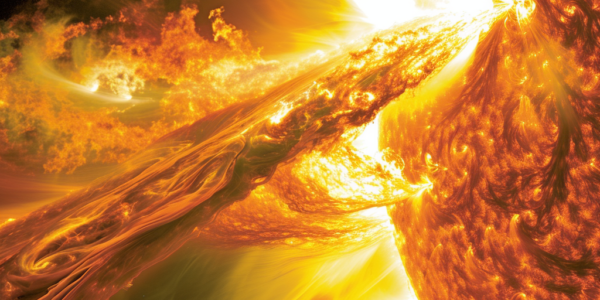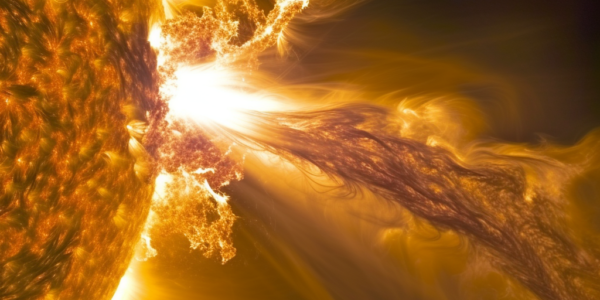Rare Celestial Spectacle: Northern Lights May Be Visible as Far South as California This Month
Get ready to witness a rare celestial spectacle as the northern lights, also known as the aurora borealis, may be visible as far south as California this month. March is expected to be the best month in two decades to see the curtains of mostly green, but also pink, purple, and red lights that are typically confined to areas around Earth’s North Pole. Don’t miss out on this ethereal display!
Solar Storm Alert Issued After Significant Coronal Mass Ejection from Sun
A solar storm alert has been issued following a significant Coronal Mass Ejection (CME) from the Sun on March 17. The CME is expected to reach Earth on March 20, potentially triggering a geomagnetic storm. NASA’s Solar Dynamics Observatory detected the ‘Canyon of Fire’ eruption, prompting forecasters to issue the alert. The storm could lead to auroras in high latitudes, with the potential for equinox auroras due to the springtime Russell-McPherron effect.
NASA Prepares for Looming Solar Storm in 2024
NASA intensifies preparations for an impending solar storm expected to peak in 2024. Recent research reveals insights into diverse solar energetic particles, raising concerns for Earth’s technology and space exploration. Learn about the potential impacts and the latest predictions by the National Oceanic and Atmospheric Administration (NOAA) regarding Solar Cycle 25.
NASA Captures Image of Strong Solar Flare
The Sun emitted a strong solar flare on Feb. 16, 2024, captured by NASA’s Solar Dynamics Observatory. Solar flares can impact communication, power grids, and spacecraft. This X2.5 flare is classified as one of the most intense, highlighting the importance of monitoring space weather. Visit NOAA’s Space Weather Prediction Center for forecasts and alerts.
Solar Explosion Triggers Communication Disruptions on Earth
An explosion on the sun has caused a massive plume of energized particles to soar through space at a speed of 900,000mph, triggering blackouts in Australia and South Asia. Physicists have identified the explosion as an M-class flare, which can lead to small (R1) to moderate (R2) radio blackouts on the daylight side of the Earth. Strong M-class flares, such as the one observed on Monday, have the potential to launch a coronal mass ejection (CME), comprising large clouds of plasma and magnetic field that erupt from the sun.
NASA Captures Powerful Solar Flare Erupting from the Sun
Nasa recently captured a powerful solar flare erupting from the Sun, causing immediate and diverse repercussions. The eruption, originating from sunspot AR3559, emitted a powerful M6.7-class solar flare in the early hours of Monday. This extreme ultraviolet flash was captured…
Geomagnetic Storm Watch for Northern Lights Display
Geomagnetic Storm Watch in effect as vivid auroras could be on display this week NOAA detected a solar flare on Jan. 20 that will send charged particles towards the earth, interfering with Earth’s magnetic field, resulting in auroras. FOX Weather…







